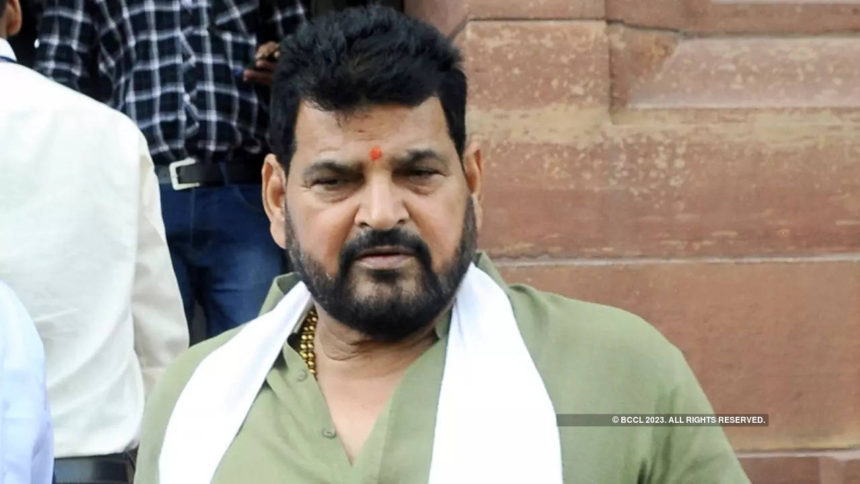
Brij Bhushan Singh, a prominent figure in Indian wrestling, has found
himself at the center of a storm as the chief of the Wrestling Federation of India (WFI). However, his tenure has been plagued by allegations of corruption and mismanagement, leading to significant protests by wrestlers who accuse him of neglecting their needs and prioritizing personal gain. This article explores Brij Bhushan Singh’s political career, the charges leveled against him, and the ensuing wrestler protests.
Political Career:
Before assuming the role of WFI chief, Brij Bhushan Singh had established himself as a politician affiliated with the Bharatiya Janata Party (BJP). He was elected as a Member of Parliament from the Kaiserganj constituency in Uttar Pradesh. Singh’s political career, coupled with his influence and connections, played a crucial role in his rise to power within the WFI.
Allegations of Corruption:
One of the most significant concerns surrounding Brij Bhushan Singh is the multitude of corruption allegations leveled against him. Wrestlers and their coaches have accused him of embezzling funds meant for their training and welfare. They claim that Singh has diverted funds for personal purposes, depriving athletes of essential resources and opportunities to excel on the international stage.
Furthermore, it is alleged that Singh has used his position to benefit financially from various wrestling tournaments and events. These allegations paint a picture of a leader who has prioritized personal gain over the development and well-being of Indian wrestlers.
Wrestler Protests:
Fed up with the alleged corruption and mismanagement, Indian wrestlers staged protests against Brij Bhushan Singh. They voiced their concerns over the lack of support, inadequate facilities, and insufficient financial assistance for their training and participation in international competitions.
The protests gained momentum when some prominent wrestlers publicly criticized Singh and his administration. They highlighted the need for transparency, accountability, and better utilization of resources within the WFI. Wrestlers demanded the removal of Singh from his position, hoping for a fresh start that would genuinely prioritize the interests of athletes.
Other Charges:
Apart from corruption allegations and wrestler protests, Brij Bhushan Singh has faced additional charges that have further tarnished his reputation. These charges include nepotism, favouritism in team selections, and lack of transparency in the WFI’s decision-making processes. Such accusations have created a sense of distrust and disillusionment among wrestlers and stakeholders within the wrestling community.
Conclusion:
Brij Bhushan Singh’s tenure as the chief of the Wrestling Federation of India has been marred by controversy, with allegations of corruption, mismanagement, and favoritism casting a dark shadow over his leadership. Wrestlers and their coaches have been vocal in their dissatisfaction, leading to protests demanding his removal. The need for transparent, accountable leadership within the WFI has become more apparent than ever, as athletes’ dreams and aspirations hang in the balance. It remains to be seen how these issues will be addressed, and whether the Indian wrestling community can reclaim its integrity and regain trust in its governing body.







